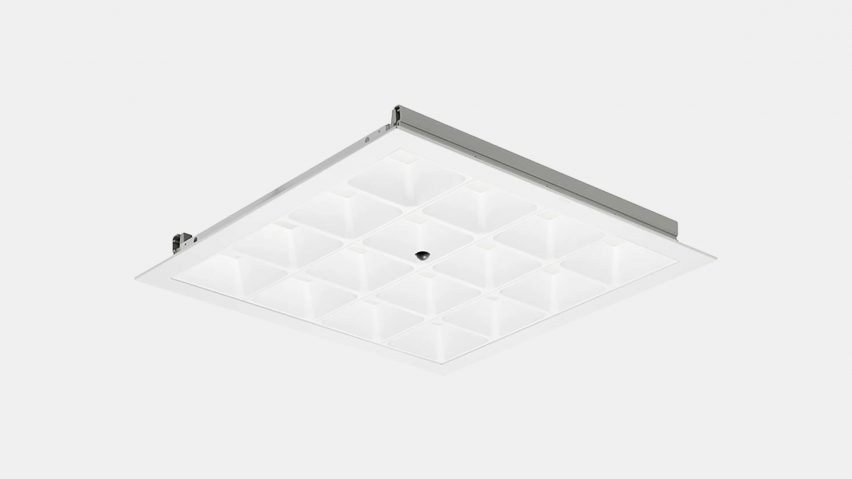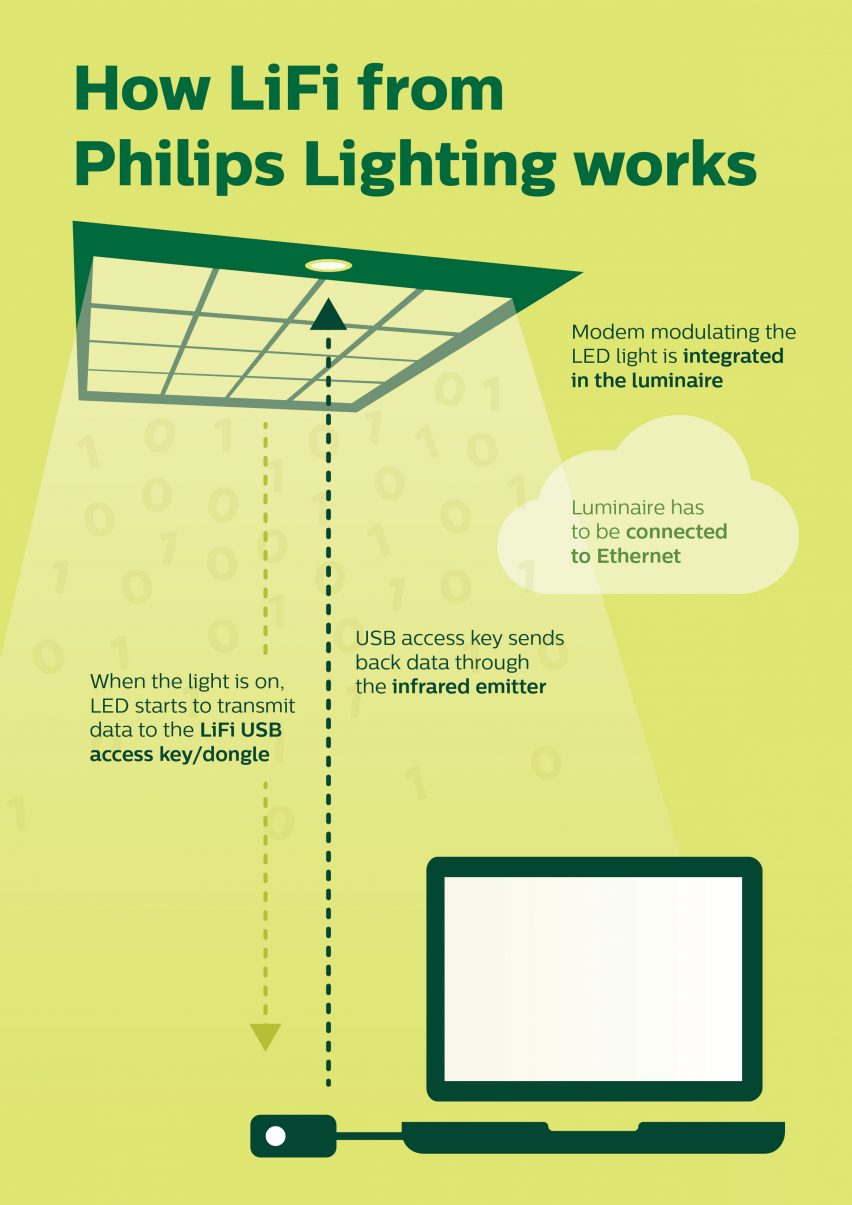
Philips Lighting announces move into Wi-Fi alternative LiFi
Philips Lighting, the world's largest lighting company, has announced its move into emerging technology LiFi – LEDs that can wirelessly transmit data at high speeds.
The Dutch lighting giant has become the first major manufacturer to offer the new technology, which allows light waves to be used to transmit broadband from LEDs to computers and tablets.
"As the lighting company for the Internet of Things, Philips Lighting is the first global lighting company to offer LiFi-enabled luminaires from its existing office lighting portfolio," said a statement from the company.
LiFi is a way of transmitting data that using light waves instead of the radio waves used by Wi-Fi. The technology was developed at the University of Edinburgh and introduced to the world by Professor Harald Haas in a TED Talk in 2011.
The first commercial LiFi system was unveiled in 2014, but the technology has yet to move into the mainstream.
LiFi has "enormous potential"
The technology will reportedly allow data to be transferred at rates up to 100 times faster than Wi-Fi, as the light spectrum is 10,000 times larger than the spectrum used for radio waves.
"LiFi has enormous potential for today's digital age and, as the world's leading lighting company, we are proud to pioneer new and innovative services for our customers," said Olivia Qiu, chief innovation officer at Philips Lighting.
"While radio frequencies are becoming congested, the visible light spectrum is an untapped resource with a large bandwidth suitable for the stable simultaneous connection of a vast array of Internet of Things devices," she added.

Philips Lighting's LiFi-enabled LEDs can transmit data at rates of 30 megabytes per second between the LEDs and a LiFi-enabled dongle attached to a computer of tablet.
"Each luminaire is equipped with a built-in modem that modulates the light at speeds imperceptible to the human eye," said the statement from Philips Lighting. "The light is detected by a LiFi USB key/dongle plugged into the socket of a laptop or tablet. The LiFi USB dongle returns data to the luminaire through an infrared link.
Trial taking place in French office
Philips Lighting's LiFi-enabled LEDs are currently being installed in real-estate company Icade's office in La Defense, Paris.
Emmanuelle Baboulin, head of the company's commercial property investment division said: "LiFi has the potential to be a real game changer in offices. As the leader in our market we wanted to explore the possibilities of this technology for existing and future clients."
"We plan to showcase the technology in our smart office in La Defense, so aside from stable connectivity, light quality is crucial to us," he added.
Philips Lighting has been pushing the potential of LEDs for some time. The company recently installed a system of LED lights at an office in Prague, which can give people a caffeine-like energy boost.